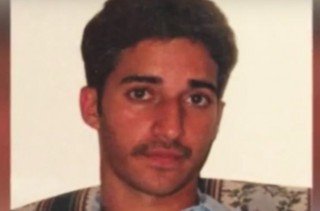 In 2000, Adnan Syed was convicted of kidnapping and murdering his ex-girlfriend Hae Min Lee, who went missing in January 1999 before her body was found a month later. Syed’s conviction, which was the subject of the podcast ‘Serial’ that swept the nation in 2014, was later vacated by a Maryland court, and a new trial was ordered.
In 2000, Adnan Syed was convicted of kidnapping and murdering his ex-girlfriend Hae Min Lee, who went missing in January 1999 before her body was found a month later. Syed’s conviction, which was the subject of the podcast ‘Serial’ that swept the nation in 2014, was later vacated by a Maryland court, and a new trial was ordered.
On Monday, the Maryland Attorney General’s office filed an appeal of this decision, arguing that Syed should not get a second trial and that his conviction should stand. Syed’s argument is that he had ineffective assistance of counsel during his trial because his attorney didn’t properly cross examine an expert witness, nor did they present testimony from a witness who supposedly would have supported an alibi.
The appeal, obtained by the Baltimore Sun, acknowledges that Syed wished to use Asia McClain as an alibi witness, but counters by saying that the prosecution has two witnesses, sisters, who can testify that McClain told one of them that she planned to lie to help Syed. Attorney General Brian Frosh requested that should Syed move forward, that his office get to add testimony from the two sisters to the record.
New: Read about the state’s appeal in the Adnan Syed case https://t.co/eKSw98YTIN (doc to post shortly)
— Justin Fenton (@justin_fenton) August 2, 2016
The other issue, regarding the expert witness, is based on the argument that Syed’s trial attorney didn’t notice a key disclaimer that was on phone records. The prosecution used an expert to show that phone records placed Syed at the site where Lee’s body was found. A disclaimer on the records that wasn’t noticed until after the trial said that location information on the records are only reliable for outgoing calls, not incoming ones. The State, however notes that there are multiple columns on the records that are marked as location information, and experts at a hearing disputed which information that disclaimer referred to.
The State’s appeal claims that because of the disclaimer’s ambiguity, Syed’s lawyer did not fail him by ignoring it. The appeal also argues that the cell site data in question was not the “linchpin” of their case, and that it only served to corroborate other evidence, so any possible error by Syed’s lawyer did not effect the outcome of the case. Additionally, the State says that the hearing that led to the order for a new trial was supposed to be about McClain, whose affidavit was new evidence, and not the phone record disclaimer, which was not new evidence. .
Stay with LawNewz.com for more on this case as it continues.
[Image via screengrab]